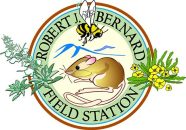Wolbert, Sophie (2018)
Risk sensitivity in feeding behavior of wild Anna’s Hummingbird, Calypte anna.
Bachelor of Arts, Scripps College, Organismal Biology.
Advisor: Elise Ferree.
Animals have various ways of responding to risks in their environment. When there is risk associated with a food source, such as variability in the amount or quality of the reward, some animals are more likely to take a risk when feeding (risk-prone) while some are less likely to take a risk (risk-averse). Previous studies on risk sensitivity in hummingbirds have typically found risk-averse feeding behavior. The present study examines the feeding behavior of a lesser-studied species, Anna’s Hummingbird (Calypte anna), and predicts that Anna’s Hummingbird will exhibit risk-averse feeding behavior in response to variable nectar concentrations. Ten pairs of hummingbird feeders were set up throughout the Robert J. Bernard Field Station in Claremont, CA, and were observed for 3-hour periods. One feeder (constant feeder) had 3 artificial flowers/vials with 10% sugar concentrated nectar and the other feeder (variable feeder) had two vials with water and one with 30% sugar concentrated nectar, where the 30% reward vial was moved to a new location after each visit. Contrary to predictions, data indicate that C. anna exhibit risk-prone feeding behavior. All individuals visited the variable feeder more than the constant feeder, and in the majority of feeding bouts the individuals looked for and found the reward (30%) vial. Individuals also spent significantly more time feeding from the 30% vials than from the 10% vials. These results seem to indicate risk-prone feeding behavior; however, the risk associated with the variable reward was perhaps not high enough to deter the birds from choosing that option. Future research, in which the level of risk is higher, must be conducted to draw any strong conclusions about the true risk sensitivity of Anna’s Hummingbird.
